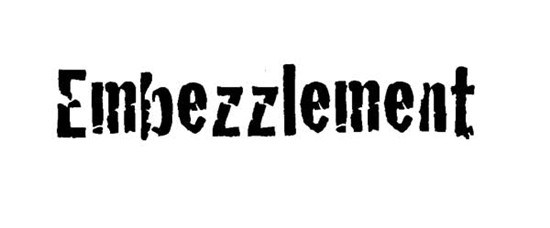By ROB Editors
Sometimes when Laurie Sorrenson, OD, would check the books of her Texas optometry practice, she’d notice that something didn’t add up in the numbers her partner had plugged into the accounting software. “Oh, I probably just put them in the wrong category,” Dr. Sorrenson would tell herself.
The partner handled all the bank statements and kept all the records, Dr. Sorrenson says. “We were in really bad shape financially, and I didn’t know it because we were having stellar months.” Finally, a tip from a vendor whom she knew well exposed what Dr. Sorrenson says was chronic theft—thousands of dollars siphoned out of the practice’s account. The practice should have been making money, Dr. Sorrenson says, but the partner “was really writing checks to herself.”
Dr. Sorrenson confronted her partner and eventually worked out a six-month repayment plan, and the partner walked away from the practice. Getting money back didn’t absolve Dr. Sorrenson from realizing she’d been careless and naïve. “I most definitely blame myself, because if I’d had systems in place it wouldn’t have happened.”
This unfortunate tale highlights two ground rules for avoiding embezzlement: First, be aware that it can and most likely will happen to you. Second, put procedures in place to make it very difficult for anyone inside the practice to steal.
Dr. Sorrenson now divides the banking and bookkeeping tasks. One person writes checks, another handles deposits, and her accountant reviews the books every quarter.
Often difficult to detect
Embezzlement can hit any business and it’s often difficult to detect. But ODs and others in health care fields are more vulnerable, says Brigitte Kelly, operations director for the Texas Optometric Association. “They tend to be very intelligent, caring people, and consequently believe that most people are like they are,” she says. The nature of running an optometric practice make monitoring the office difficult, she adds. “In their business, you can’t do walk-around management” because ODs are busy with patients. “So it’s easy to take advantage of you.”
Kelly also thinks the rising number of women on optometry is a factor. “Women tend to be more trusting, and when they go into business they form little families” made up of partners and staff members, she says. “They think that nobody steals from family, but yes, they do.”
Kelly lectures on the topic to fourth-year students at the University of Houston College of Optometry. She’s got some investigative experience, having worked for an intelligence service in the U.S. military. “When I talk to students, I tell them, ‘Be prepared. You will be stolen from.’”
Some steps to take are obvious but often are overlooked. First, look at the financial records yourself. Check the bank statements and have them sent to your home, not the office. Take a few minutes every day to look at the list of patients you saw and the payments made. Plus, if a disgruntled patient comes in, don’t hand them off to your office manager. Those complaints oftentimes reveal some impropriety in how payments were handled, Kelly says.
Further, admit that, believe it or not, you may not be that great a judge of character you think you are. Get a background check and a credit check done before you hire someone, especially a person who will have a position of trust.
There are plenty of examples of trusted long-time employees who steal. Kelly worked for an OD in the early 1990s, who didn’t believe Kelly’s assertion that the practice’s bookkeeper was stealing. “She was a great personal friend of his,” she says. Eventually the theft was uncovered, and the bookkeeper was convicted. Prevention would have saved that OD a lot of pain, she says. Prosecuting embezzlement and recovering lost money is very difficult and expensive. “I tell doctors that when they graduate, they have a bullseye on their head. As soon as you put “Dr.” on your name, everybody assumes that you’re wealthy. They don’t care that you’re $100,000 in debt from going to school.”
Embezzlement can do more than just weaken a practice; it can destroy it—or worse. Dr. Harry Wachs, a Washington, DC, optometrist, sold his practice in 2006 and thought he was headed into a well-earned retirement. But he soon learned that his trusted bookkeeper had been lying to him about paying federal taxes, and had instead pocketed about $186,000. “She was very, very trusted,” Wachs told the Washington Post. “She had the keys to our house.” The Internal Revenue Service ended up collecting about $2 million from Wachs for back taxes and penalties. The bookkeeper was convicted of mail fraud. “She really ruined the rest of our life,” Dr. Wachs reflected.
Dr. Sorrenson thinks about her experience often when she is reviewing her bank records. She now gets email notices from her bank for every check paid out and deposit made. The experience was difficult, but she also calls it “the best thing that ever happened to me. It made me a much better business person.”
Action Points
Monitor activity
Set up a system with your bank to send emails (to your home email) for every check paid out and every check deposited.
Install good software
Choose a software system that includes a hidden audit trail viewed only by ECP. Make sure everyone must log on and log off with every transaction, allowing you to track (and audit) every keystroke.
Examine lists
Examine the lists of exams done every day and of payments made—daily!
Be hands on
Don’t hand off to an office manager a patient who is disgruntled about a bill; their case may be an indication of embezzlement.
Pamela Miller, OD, JD
What to do if you suspect embezzlement






















